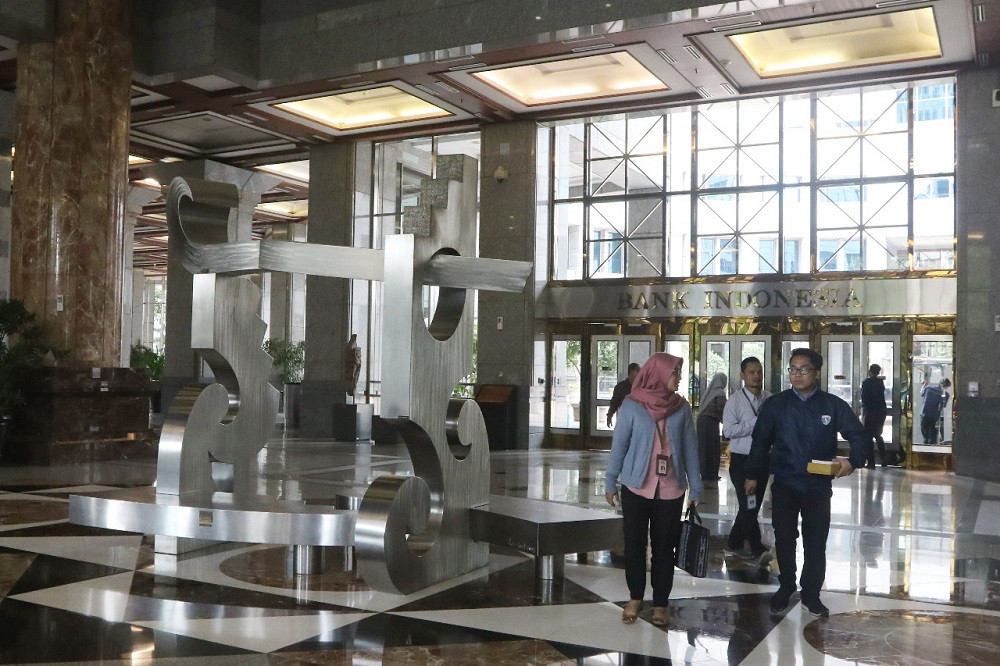Popular Reads
Top Results
Can't find what you're looking for?
View all search resultsPopular Reads
Top Results
Can't find what you're looking for?
View all search resultsLooking closely at Bank Indonesia's dilemma
Tackling the current economic situation is highly important, but calculating the risks of the huge government debt to central bank, the question about monetary independence and the shape of BI’s future balance sheet is also important.
Change text size
Gift Premium Articles
to Anyone
I
n a crisis, the central bank suddenly becomes the “superhero” that is supposed to save the macroeconomy by ensuring a stable exchange rate and inflation, sufficient liquidity for the market and the public and, if the situation worsens, a bailout. This time it is no different. Since March, Bank Indonesia (BI) has tried to use all its firepower to mitigate the impact of COVID-19.
First, since BI is able to buy a tradable government bond in the primary market as stated in Law No. 2/2020 (formerly Regulation in Lieu of Law (Perppu) 1/2020), it has bought around Rp 397.56 trillion (US$27.4 billion) worth of government bonds through private placement. The bonds financed the government programs to cope with the public health and economic crisis, providing social aid and various kinds of subsidies for the poor.
Secondly, BI has gradually lowered the BI 7-day repo rate (BI7DRR) by as much as 200 basis points (bps) to 4 percent. Thirdly, it lowered banks’ reserve requirements by 200 bps for foreign exchange and 50 bps for rupiah. Fourthly, it strengthened its intervention to safeguard the rupiah’s value in the spot and forward market. Quoting a recent remark by Australian economist Hall Hill, BI has responded to the shock quickly and did whatever it takes to save the economy.
But the various policies implemented by BI to cure the economy seem less effective than hoped. The attempt to save the currency might be pretty good, the fast depreciation of the rupiah to the US dollar in March to April has been halted. However, the excess of liquidity in the market has not appeared to boost consumption, and the loose monetary policy did not really pump up credit extension.
Statistics Indonesia recorded a 5.3 percent year-on-year (yoy) economic contraction in the second quarter. Furthermore, banks and other financial institutions still find it difficult to expand lending, which grew only 2.27 percent yoy in July. Making matters worse, government spending for both the health care and economic recovery programs as of July reached only 18.3 percent of the budgeted funds.
On the other hand, BI may face unavoidable risks by implementing the abovementioned policies. First, the more liquidity BI injects into the market, the bigger its liabilities. That might be unfavorable for BI, because the burden of the liabilities will be heavier (costlier) since it has to pay larger interest and yields.
By implementing burdensharing with the government in order to save the national economy, BI has to bear the 1 percent difference between market interest and BI-7DRR for the private sector and small and medium enterprises (SMEs) that are non-public goods. This has led to the second risk: independence issues. The burden-sharing scheme might compromise BI’s independence due to significant government involvement in directing monetary policy.


















